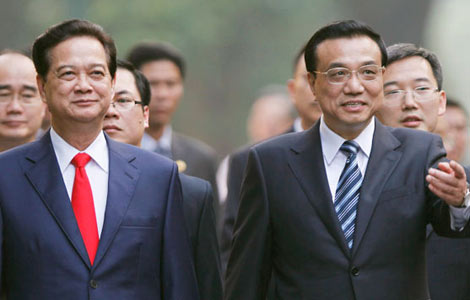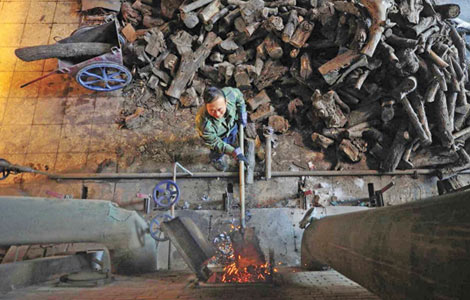Timeline
Updated: 2013-10-14 06:53
(China Daily)
|
||||||||
1991: The first law relating to demolitions in cities is enacted. It mainly targets old and shabby dwellings in a bid to improve housing conditions and leads to very little conflict.
1994: A new policy on urban housing reform that encourages real estate development is declared. Real estate developers, instead of local governments and "work units", become increasingly important providers of housing. Profound tax reforms are introduced in favor of the central government, which now shares 75 percent of value-added tax and 60 percent of corporate income tax. Local governments begin to increasingly rely on revenue from land sales.
2001: The regulations relating to demolitions in cities are revised, but still allow developers to carry out forced demolitions. Local governments are authorized to enforce demolitions.
2007: The Property Law is enacted. It says: "It is necessary to make compensation for demolishment and relocation according to the law and to safeguard the legitimate rights and interests of the owners of the properties expropriated; as for the expropriation of individual residential homes, it is necessary to safeguard the housing conditions of the owners of the houses expropriated."
2011: The urban demolition regulations are revised again, forbidding forced demolitions in the cities by governments. If the government cannot reach agreement with homeowners regarding expropriation or compensation, demolition can only be carried out after review and approval by a court. The measure also outlaws the illegal cutting off of water and power supplies during the period of relocation. It also states that compensation for expropriated homes in urban areas should not be lower than the sum of the market price of similar properties at the time of expropriation.
- Tang Yue
(China Daily USA 10/14/2013 page6)

 Senate leads hunt for shutdown and debt deal
Senate leads hunt for shutdown and debt deal
 Chinese education for Thai students
Chinese education for Thai students
 Rioting erupts in Moscow
Rioting erupts in Moscow
 Djokovic retains Shanghai Masters title
Djokovic retains Shanghai Masters title
 Working group to discuss sea issues
Working group to discuss sea issues
 Draft regulation raises fines for polluters
Draft regulation raises fines for polluters
 Other measures for the capital to become green
Other measures for the capital to become green
 Colombian takes wingsuit crown
Colombian takes wingsuit crown
Most Viewed
Editor's Picks

|

|

|

|

|

|
Today's Top News
90 killed in stampede in central India
Senate leader 'confident' fiscal crisis can be averted
China's Sept CPI rose 3.1%
No new findings over Arafat's death: official
Chinese firm joins UK airport enterprise
Working group to discuss sea issues
Man hospitalized years after amputating own leg
Detained US citizen dies in Egypt
US Weekly

|

|







